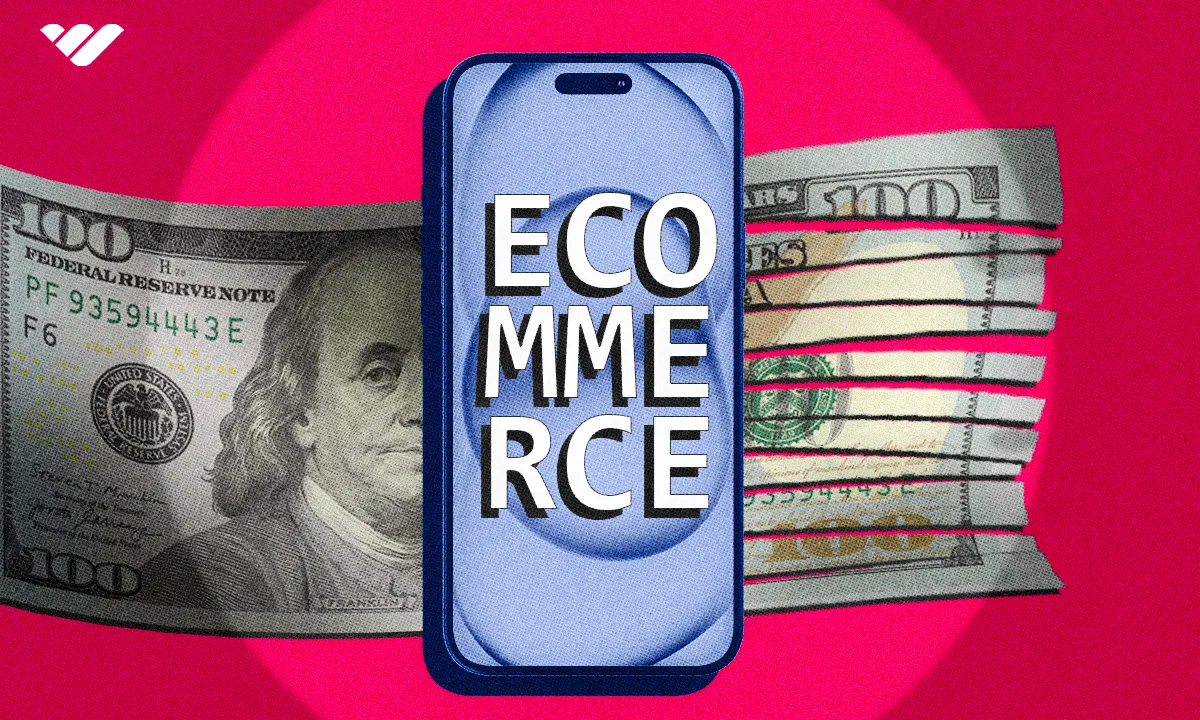Want to know how to start a business without spending a penny? Keep reading to learn about how to start an ecommerce business without any money,
Key takeaways
- Zero-cost business models like dropshipping, digital products, and print-on-demand let you launch without inventory investment.
- Free platforms like Whop, WooCommerce, and Square Online eliminate startup costs while you build your customer base.
- Organic marketing through social media and SEO can drive traffic without paid advertising expenses.
When it comes to opening an online business, many people imagine it to be a process that requires detailed market research, knowledge of the best products to sell, and a large initial investment of capital. While the first two elements mentioned are necessary to a certain extent, the truth is that you don't really need any money to open an ecommerce business.
If you have the will power and the right information, it’s possible to start a business without spending a penny.
Want to know how? Then keep reading and learn everything you need to know about how to start an ecommerce business without any money.
Why should you start an ecommerce business?
Starting an ecommerce business offers a range of benefits, especially in the current digital landscape where online shopping is becoming a main form of shopping. Whether you’re looking to start a new career path, get a side hustle, or gain financial independence, ecommerce can be a very good business model.
Low startup costs
One of the biggest draws of starting an ecommerce business is how little cash you need upfront. You don’t need to rent a physical storefront or deal with the overhead of a traditional business. With a basic website on a platform like Shopify or Amazon, you can start selling with minimal upfront investment (which is the point of this article, right?).
Whether you’re selling digital products, running a dropshipping business, or sourcing products yourself, the financial barrier to entry is much lower than it would be in a physical retail setting.
Unlimited growth potential
With ecommerce, there’s almost no limit to how far your business can grow. You’re not restricted by physical locations or hours of operation. As long as you have the right marketing strategies in place, you can continue scaling your business as demand increases.
Want to keep your online business a small side hustle? Or, are you aiming to turn your company into a large global operation? Ecommerce offers you the flexibility to grow at your own pace.
Global reach
One of the most exciting aspects of running an ecommerce business is the ability to reach customers from all over the world. You’re not limited to a local customer base like a traditional shop would be. With the right marketing and shipping strategies, you can connect with people from different countries and time zones, making your business truly international.
Opportunity to build passive income
Ecommerce also offers the opportunity to create passive income streams. Once your store is set up and automated, you can generate sales without needing to be actively involved 24/7, unlike a brick-and-mortar business.
Whether it's through automated fulfillment processes or digital products that require no physical shipping, ecommerce can allow you to earn money while focusing on other ventures or enjoying some well-deserved free time.
Things to consider before starting an ecommerce business: 6 steps to success
While starting an ecommerce business seems like an exciting new venture into a profitable career path, it's important to do some groundwork before diving into it. While the barriers to entry could be considered lower compared to traditional businesses, there are several factors to consider even before starting an ecommerce business.
It may take time to see results
Building a successful ecommerce business doesn't happen overnight. It often takes months (or even years) to grain traction, attract regular customers, and see consistent profits. According to Forbes, 90% of ecommerce brands fail within four months, so you need to be ready for the long game—especially if you're relying on organic marketing strategies like SEO and social media.
Profit margins can be slim
Depending on your business model, the profit margins for operating an online business can be thin, especially in dropshipping and print-on-demand businesses. You're often selling at a markup but with low margins after covering product costs, shipping fees, transaction fees, and marketing expenses.
In this sense, choosing the right product and business model is essential. When selling digital products, for example, you don't have to worry about shipping fees or product storage, but you still need to deal with marketing to ensure that your products sell and you make a profit.
You'll face a ton of competition
Like any industry, the ecommerce space is highly competitive. Working in popular niches like fashion, fitness, or electronics is especially tough because established brands, that also have physical stores, often dominate these spaces. It can be hard to differentiate your business so you'll need to have a clear value proposition and a marketing strategy that helps stand out from competitors.
How to start an ecommerce business without any money
Starting an ecommerce business with no money might sound like a pipe dream, but thanks to the power of free software tools, open platforms, and creative strategies, it's more possible than ever. Here’s how you can do it:
Find your niche
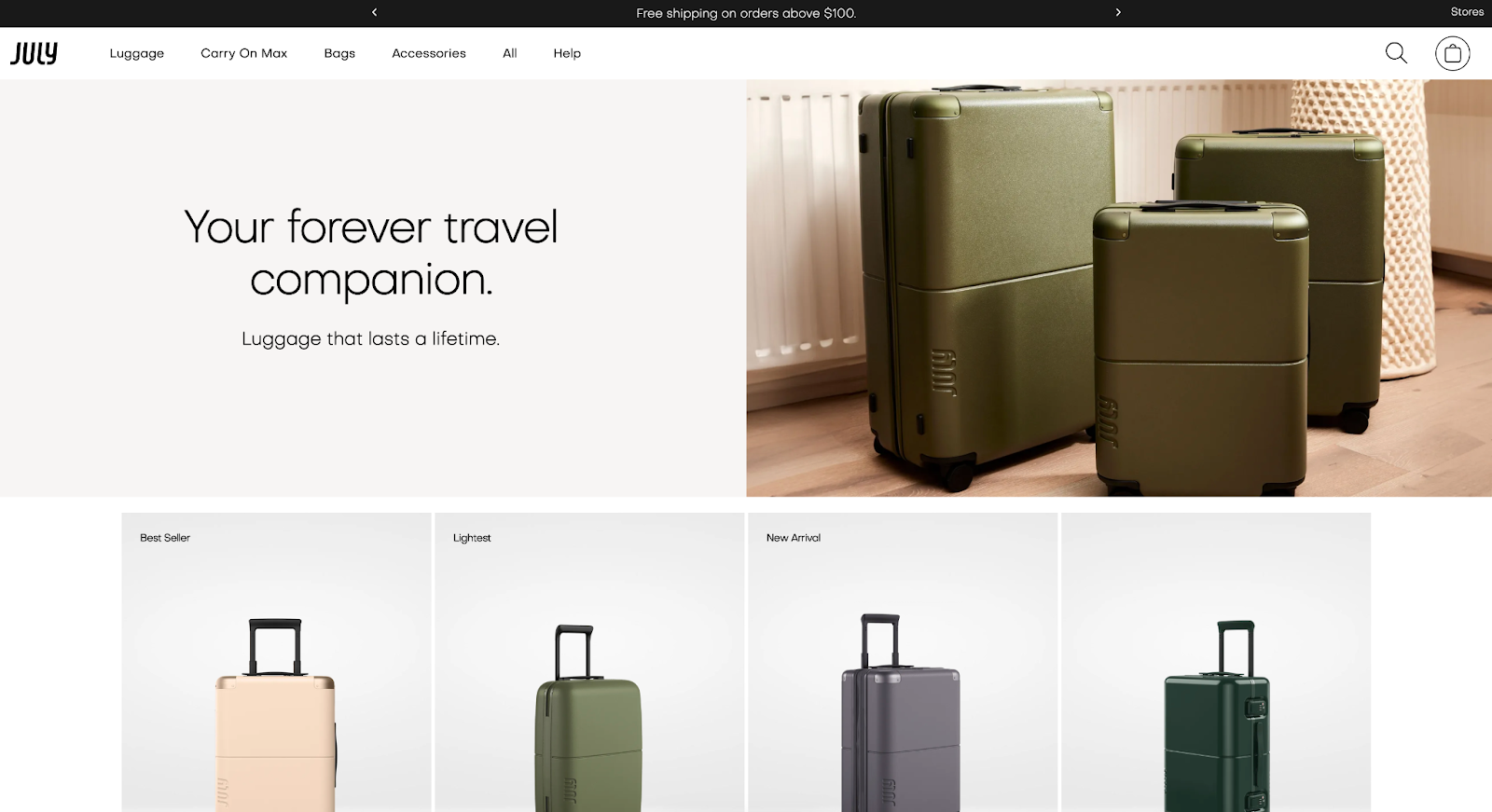
Before anything else, you need to decide what you’re going to sell—and more importantly, who you’re selling to. The more specific your niche is, the easier it is to stand out. Think about what you’re passionate about, what people are already buying, and where you can make an impact.
For example, let’s say you love traveling. Instead of just selling “travel products,” narrow it down. You could focus on travel products for specific types of weather, or eco-friendly travel accessories. Being specific helps you connect better with your audience and makes your store feel more curated.
- Choosing a Good Store Name
- Best Products to Sell Online
- Best Products to Resell
- Trending Products to Sell Online
- Best Ecommerce Business Ideas
Choose a business model that works for you
Now that you’ve chosen your niche, it’s time to figure out how you’re going to sell. Since you’re starting an ecommerce business without any money, you want a business model that doesn’t require upfront inventory costs or significant investments.
Many business models are low-risk and cost-effective, you just need to choose one that fits your skills and goals. Here are some options.
Sell digital products
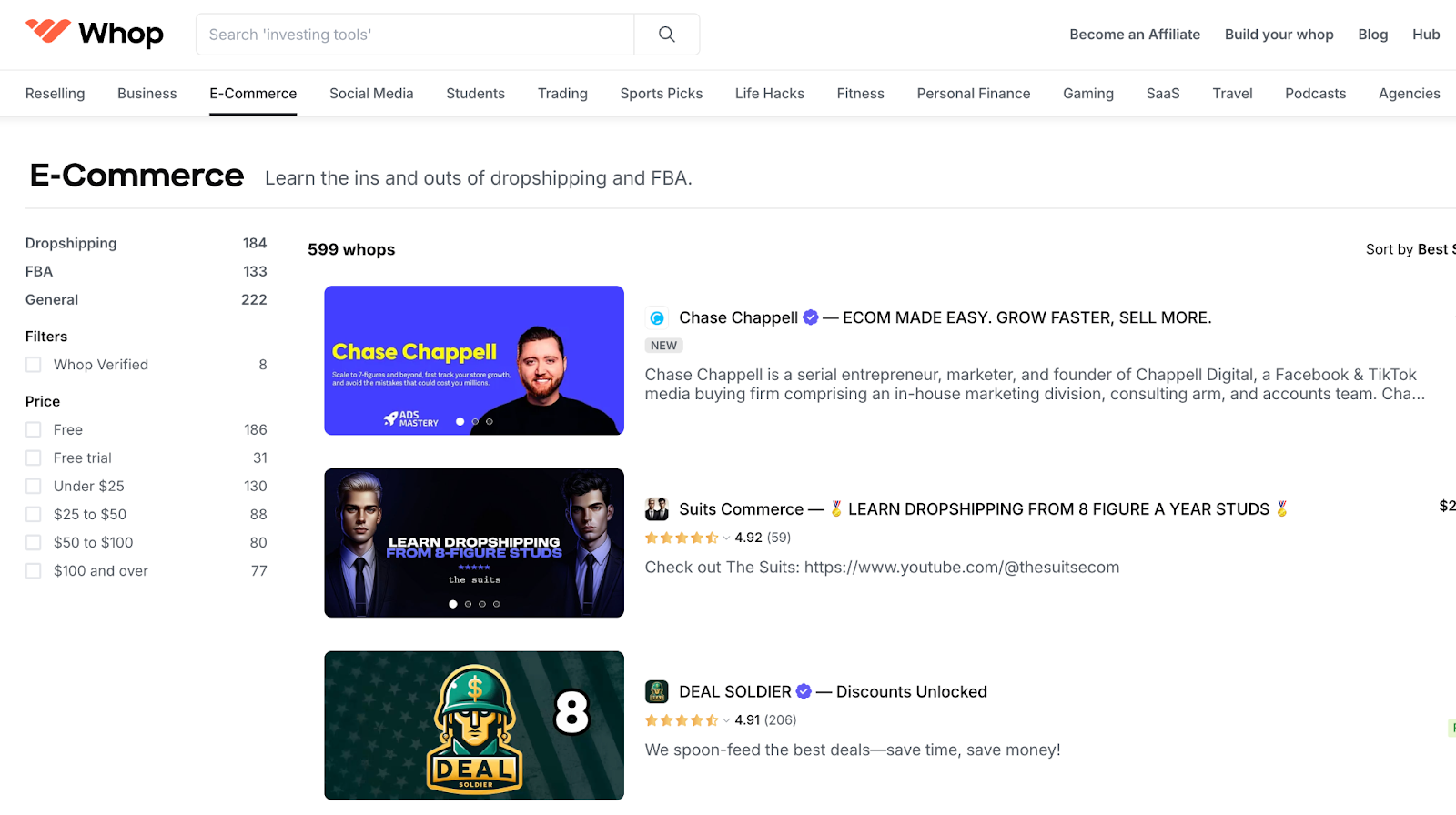
Selling digital products is one of the best ways to start an ecommerce business without upfront costs. You can create items like eBooks, online courses, or printable designs and sell them without worrying about physical inventories or shipping costs.
Another great benefit of selling digital products is that, once an item is made, it can be sold repeatedly with no additional expenses. Platforms like Whop allow you to list digital products for free as they take a commission of your sales, making this a low-cost, scalable option. Whop is the best marketplace for selling digital products because it offers full support with no additional fees.
Pros: No inventory or shipping costs, scalable business model.
Cons: Requires skill, time investment, and specific tools to create the product.
Dropshipping
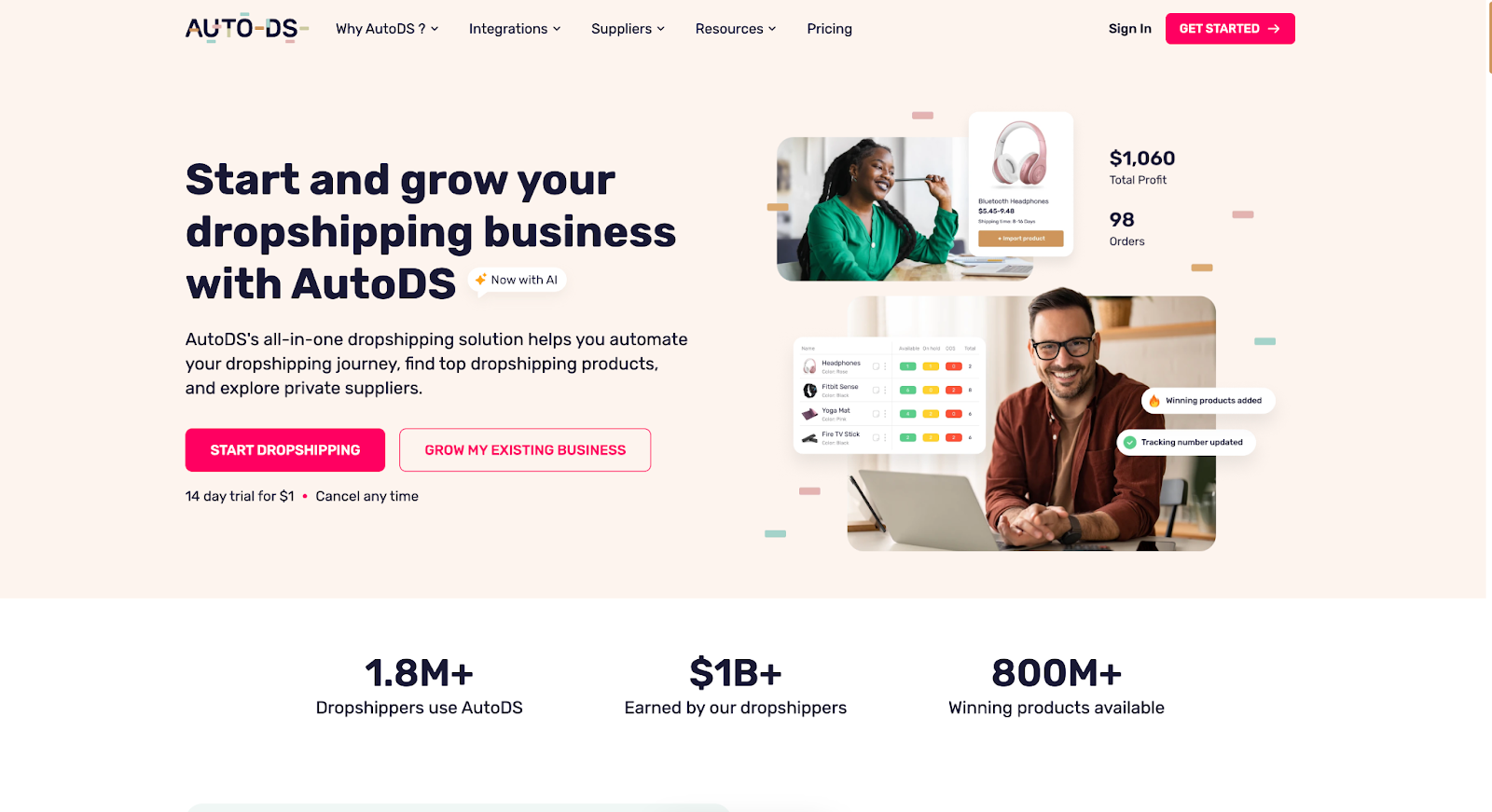
Dropshipping is another business model that requires little to no initial investment. Instead of buying products upfront, you partner with suppliers who handle the inventory and shipping for you. When a customer places an order, the supplier ships the product directly to them, meaning you don't have to pay for stock or fulfillment.
All you need is a website or an account on a marketplace, like eBay or Amazon, to get started, and you can focus on marketing without worrying about warehouse costs. Here at Whop we have many online courses that can teach you everything you need to know to start dropshipping. Check them out and start your dropshipping business today.
Pros: No upfront inventory costs, lower risk compared to other business models.
Cons: Lower margins, and reliance on third-party suppliers for product quality and shipping times.
Print on demand
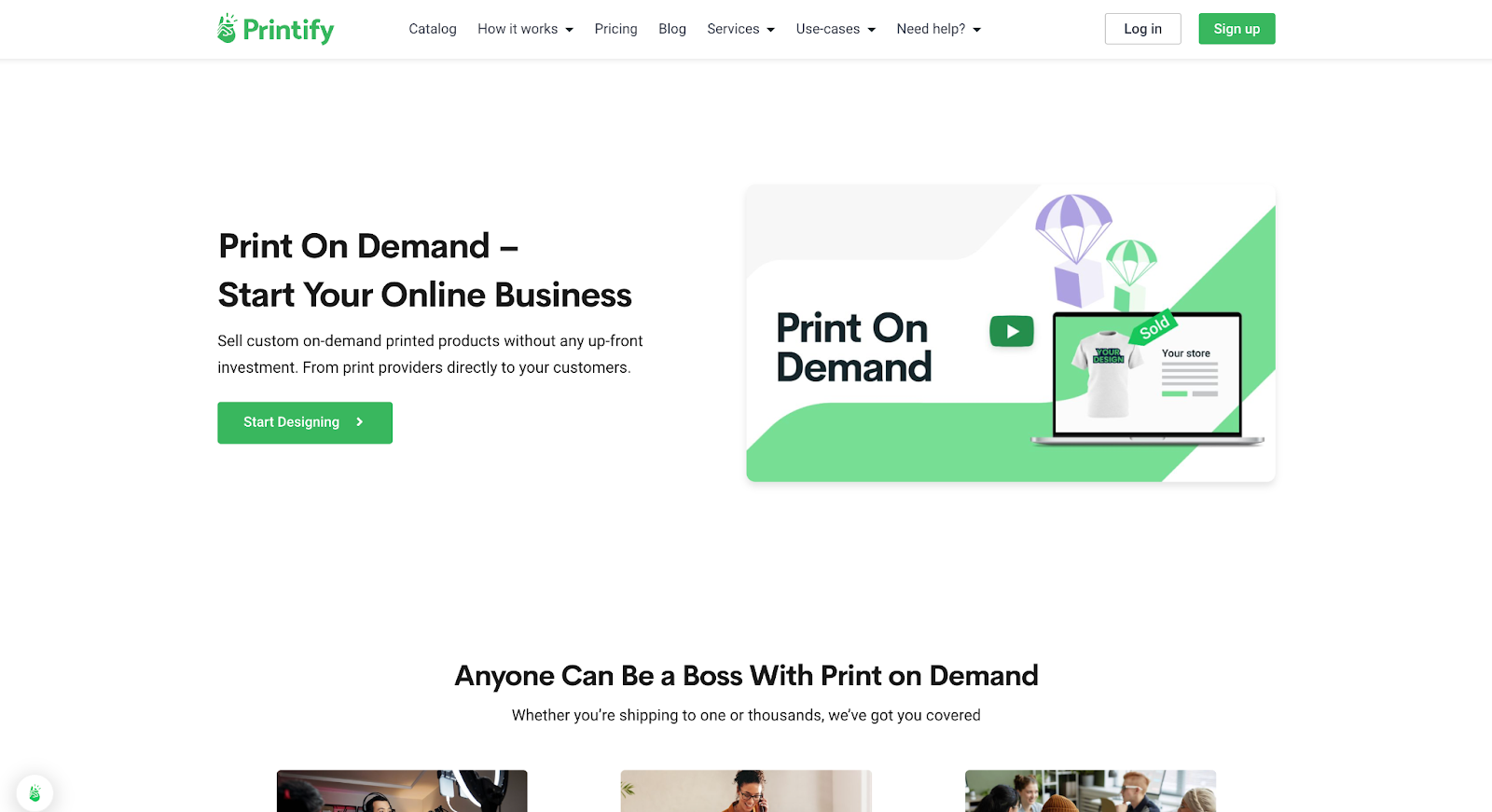
Similar to dropshipping, print-on-demand (POD) allows you to sell custom products like t-shirts, mugs, or posters without carrying inventory. You design the products, and when someone places an order, the POD provider prints and ships it. This means that for the customer, the shopping experience is continuous and coherent as if everything had been managed directly by the store that advertised the product.
Platforms like Printful and Printify integrate with online stores, making it easy to start with no upfront investment.
Pros: No upfront inventory costs, creative freedom.
Cons: Lower profit margins, print quality and shipping times depend on the third-party provider.
Affiliate marketing
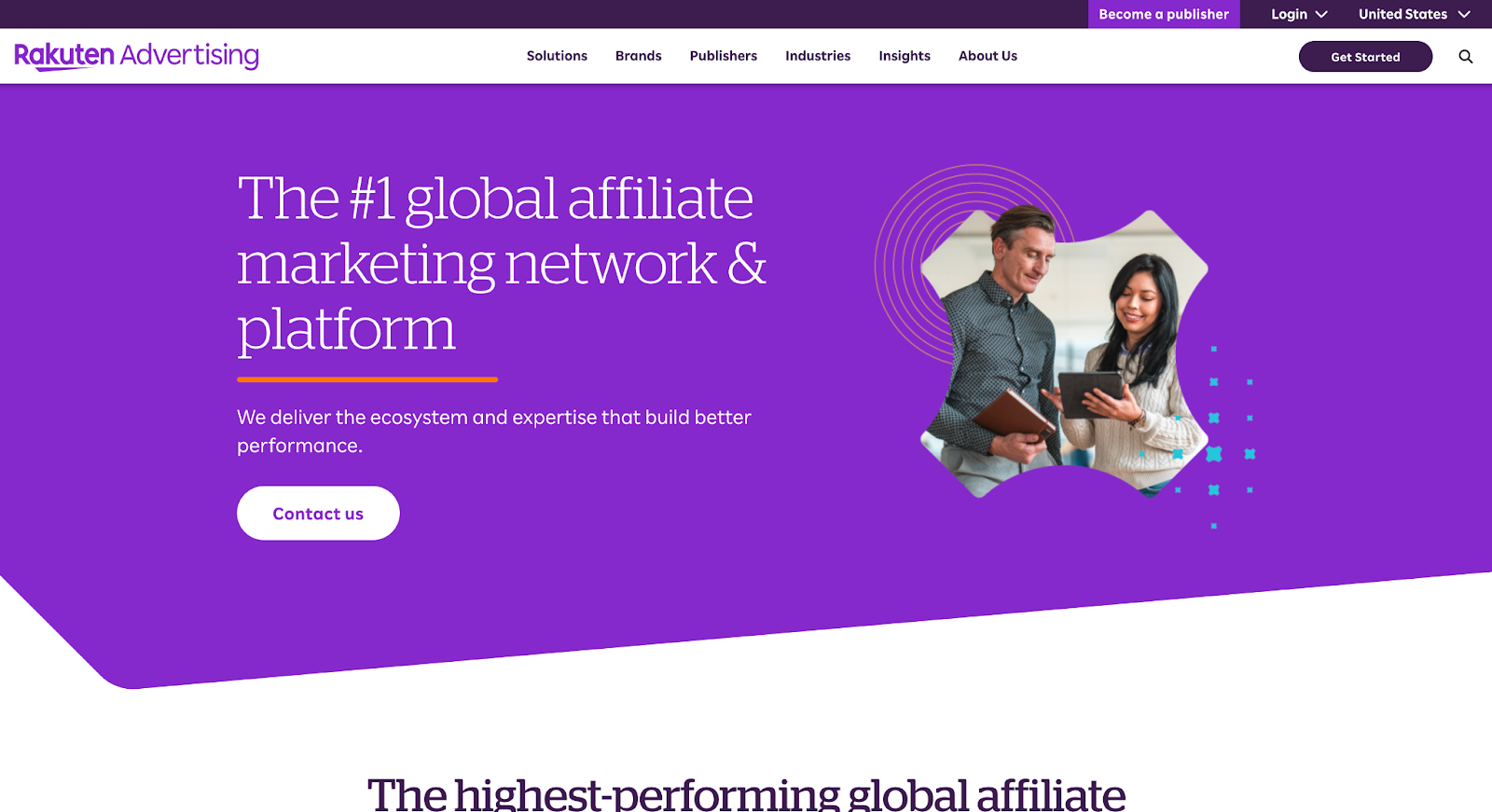
Affiliate marketing involves promoting other companies’ products and earning a commission for every sale made through your referral. You don’t need to create or manage any products yourself, making it an ideal model for those starting with zero funds. All you need is a platform—like a blog, YouTube channel, or social media presence—to share affiliate links. The more traffic and engagement you generate, the more potential income you can earn.
Pros: No need to handle inventory, no startup costs.
Cons: Requires building an audience and trust, commissions can be relatively low.
Social media selling
You can also start your ecommerce business by simply selling directly to your audience on social media like Instagram, Facebook, and TikTok. You don’t need a website to begin; you can use social media marketplaces—like Facebook Marketplace— or even post items for sale directly in your feed.
By focusing on strategies that generate organic traffic, you can build an engaged following, creating a solid base of active buyers. It may not look as “professional” as other types of business models, but it's a great way to start a business with no budget.
Set up your store with the right platform

Choosing the right ecommerce platform is essential when starting without any money. Look for platforms that offer free or low-cost subscription plans that you can use until your business generates real profits.
Here are some low-cost ecommerce platforms to get started:
- Whop (Free): Whop offers everything you need to create your store, sell digital products, and process payments, with no subscription fees.
- Shopify (14-day free trial): Shopify is super easy to use, with tons of themes and plugins to get you going.
- WooCommerce (Free): If you’re familiar with WordPress, WooCommerce is a free plugin that turns your site into an ecommerce store. You’ll only need to pay for web hosting, which can be as low as $3/month.
- Square Online (Free): Square offers a completely free online store platform where you only pay a transaction fee per sale.
Market your store for free
When thinking about generating traffic for online businesses people, immediately tend to think about paid advertising. But, there are plenty of ways to get the word out about your ecommerce business without spending any money.
Some strategies you can use to generate organic traffic without expending money are:
- Social Media Marketing: With an account on platforms like Instagram, TikTok, and Facebook, you can actively interact with your potential customers and generate organic interest in your brand by sharing engaging posts and stories, showcasing your products and services. You can even talk to your audience via Messenger or answer questions on your posts.
- SEO (Search Engine Optimization): Using the most-searched keywords in your product titles and descriptions, for example, will make them easier to find on marketplaces. The same goes for website posts or social media posts. Tools like Google Trends can help you find the best keywords and make the most of this free and powerful marketing channel.
- Influencer Marketing: For an ecommerce business starting without capital, the key to using influencer marketing effectively is to approach influencers with a smaller, but loyal, following. Many “micro-influencers” (with between 10K to 100K followers) will promote products in exchange for free samples or commission-based deals. This can be a low-cost way to tap into a new audience and can be beneficial for both parties.
Engage with customers
Engaging with your customers is key to building loyalty and trust in your ecommerce business, especially when starting with no money. One of the most effective free tools for doing this is WhatsApp Business. With features like automated messages, labels to organize conversations, and even product catalogs, it’s a great way to communicate directly with your customers. You can answer questions, provide updates, and send promotions—all on a platform most people already use daily.
Social media platforms also offer free tools to engage with your audience, whether through Instagram DMs or Facebook Messenger. Prioritizing customer engagement helps foster relationships, turning one-time buyers into repeat customers without needing a large marketing budget.
Track and optimize for success
Now that your ecommerce business is up and running, you need to monitor your results and adapt so that it continues to grow. And of course, you don’t need to spend a lot to do so.
Free tools like Google Analytics and Facebook Insights can help you monitor website traffic, customer behavior, and conversion rates. These tools allow you to see what’s working and where improvements are needed. You can also use the built-in analytics on platforms like Shopify or WooCommerce to track sales, popular products, and customer trends.
Once you have the data, focus on optimizing areas like product listings, pricing, or marketing strategies to maximize results. Consistently tracking and refining your approach helps you grow your business without needing to invest in expensive software or tools.
Profitable ecommerce business ideas that you can start with no money
There are plenty of profitable business ideas you can launch with little to no money. From selling services to creating your own products, the possibilities are endless. Now that you know how to open an ecommerce business without any money, here are some profitable ideas you can work with.
- Sell Your Services: Offer freelance services like writing, design, or consulting through online platforms—no inventory required.
- Sell Handmade Items: Create and sell unique, handmade products like jewelry, crafts, or home decor using free platforms like Etsy.
- Create Merchandise: Use print-on-demand services to design and sell custom t-shirts, mugs, or hoodies without upfront costs.
- Sell Subscriptions: Offer subscription boxes or digital services, such as exclusive content or curated products, to build recurring revenue.
- Create Online Courses: Share your expertise by developing and selling educational courses on platforms like Whop or Teachable.
- Start a Clothing Line: Design and sell your own clothing using print-on-demand services without worrying about inventory or production.
- Flip Children’s Toys: Buy and resell popular or vintage toys through marketplaces like eBay, often requiring minimal startup capital.
- Sell Books: Curate and sell new or used books online, or write and publish your own eBooks for passive income.
- Sell Photographs: Sell your photography on stock image websites like Shutterstock, earning passive income with no physical products.
Launching your business is easy with Whop
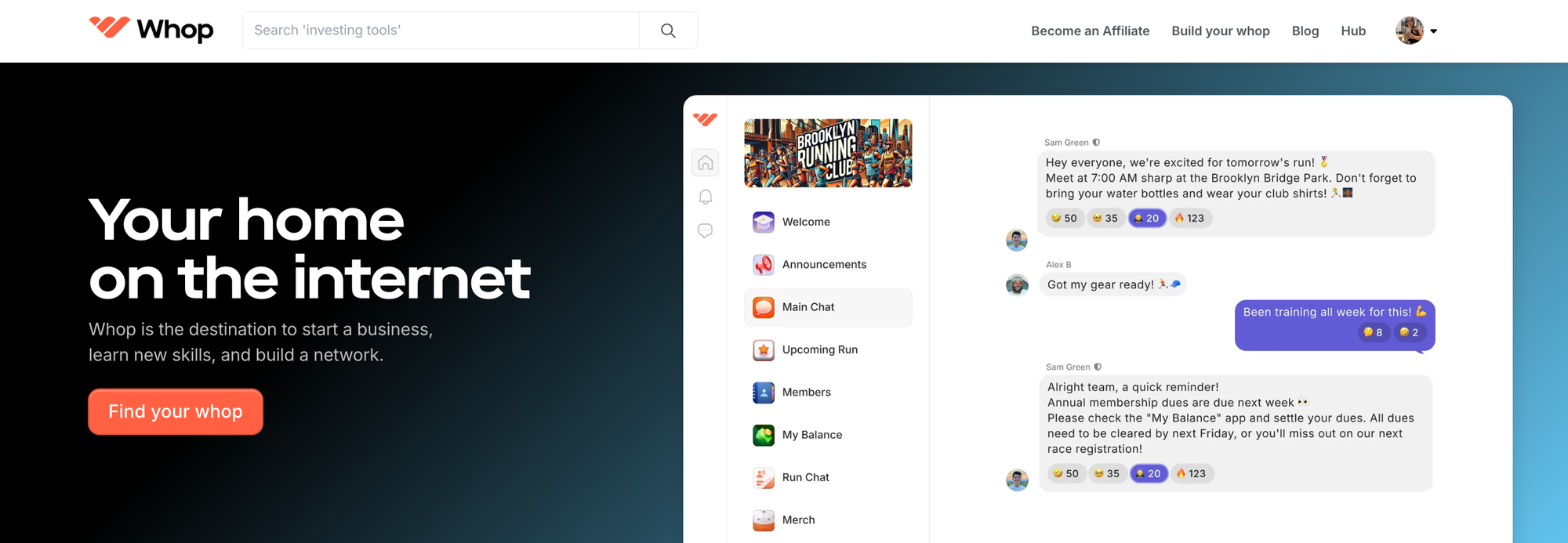
Now that you've learned how to start an ecommerce business without any money, how about going deeper into the actual skills, tactics, and strategies?
With Whop, you can get access to hundreds of online courses and communities led by ecommerce experts, ready to guide you and turn your expertise into a profitable online business. You can find ecommerce advice and education right here on the Whop Marketplace.
When you're ready to build your business, build it with Whop. Whether you want to sell online courses, paid community access, ebooks, software, webinars, masterminds, or anything else digital - you can do it all with Whop.
FAQs
Here are the most frequently asked questions about how to start an ecommerce business without any money.
How do I market my ecommerce business with no budget?
Leverage social media platforms like Instagram, TikTok, and Pinterest to showcase your products for free and generate organic traffic, building an engaged audience through consistent posting. Use SEO techniques with high-volume keywords to make your products easier to find in search engines and drive traffic to your online store.
Why should you trust us
Bringing a wealth of experience in overseeing affiliate programs for online brands, Joe Niehaus is an ecommerce expert and content writer at Whop, who has also shared his knowledge with leading publications such as Business Insider, GQ, and Travel + Leisure.


